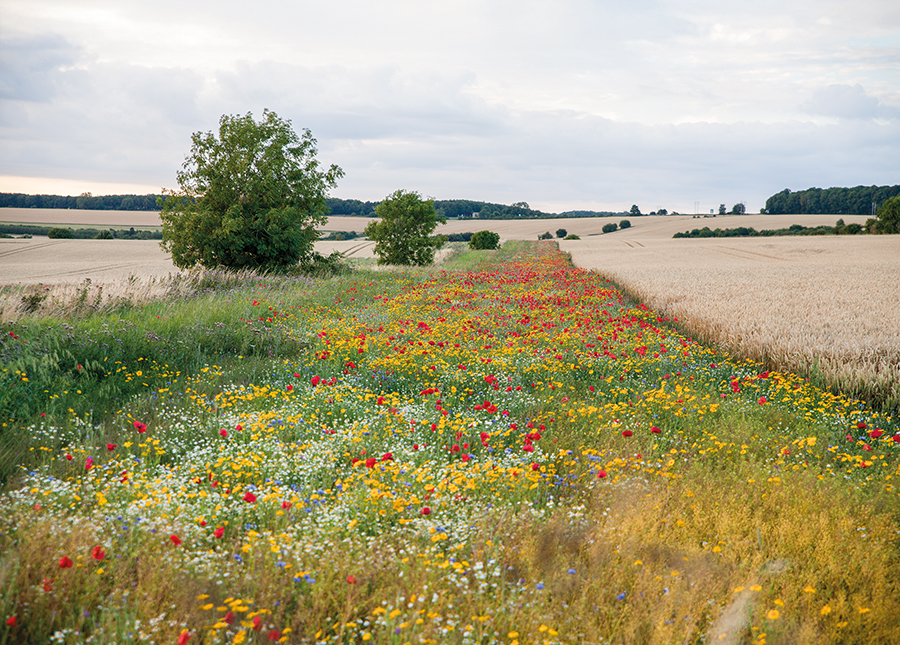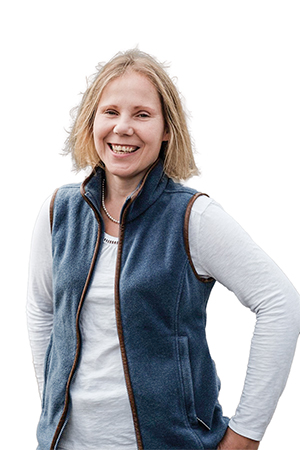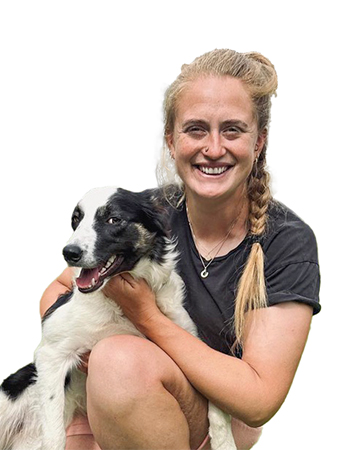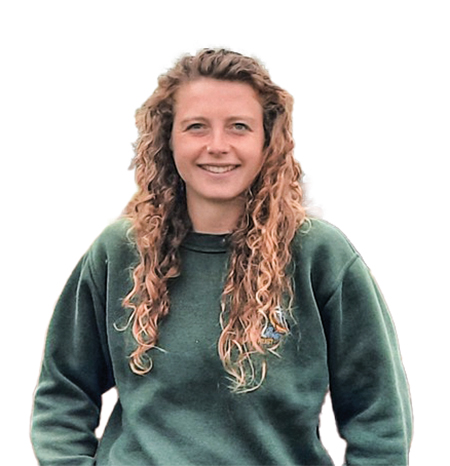Farm Resilience Fund – Advice from providers on Government schemes
29th August 2024
With the daunting number of funding changes that have been – and still are – taking place across the farming community in the UK, there is a clear need for transparent advice and guidance for farmers on the Farm Resilience Fund. Sarah Juggins reports.

In England, farmers are trying to navigate their way from the Basic Payment Scheme (BPS) to Environmental Land Management Scheme (ELMS). The underlying aim of these sweeping changes is to promote resilience and sustainability in agriculture and to farm in a way that is good for food production and the environment.
One of the main funded opportunities for farmers to learn how to best negotiate the changes is Defra’s Farm Resilience Fund, which has been providing support to farmers and land managers since 2022. The fund is available to any farmer who has been in receipt of BPS since October 2022 and it is designed to provide advice and training in adapting and developing a business in light of the changes to agricultural funding.
Among the support on offer are one-to-one consultations, farm visits, reports from experts with associated recommendations and access to workshops and webinars. Those who have taken up the offer report one of the biggest positives is the ability to network with other farmers.
A variety of providers
The Farm Resilience Fund is delivered by a variety of agencies across the country. Agricultural or rural business consultants or environmental consultants such as ASAS, Berrys, Ceres Rural, JH Agri-Consultancy and numerous others have a range of offers for their clients.

Rural business consultancy Laurence Gould has been offering the Future Farm Resilience Fund to its clients free of charge since the scheme began in 2022.
Keith Leddington-Hill is managing director of the Cambridgeshire-based company. He says: “Laurence Gould Partnership has provided support for more than 1,000 farmers through the delivery of its webinars, which have covered a wide range of topical subjects over the past three years. These subjects include energy and fertiliser costs, SFI, succession planning, carbon audits, grain markets, and livestock joint ventures. We also deliver one to one advice and the delivery of carbon audits.”
Some of the key issues such training has helped address are decisions on joining the SFI scheme, which will contribute towards replacing the lost income from the reduction in the Basic Payment Scheme payments.
And, adds Keith: “It has provided the opportunity for clients to stand back and look at their situation and whether other changes should or need to be considered. Some farmers have found it useful in setting their baseline benchmark on carbon use on the farms when considering the new emerging schemes on offer.”
Keith says he has been surprised at the reluctance of some farmers to have carbon audits, pointing to the large benefits that could accrue. “The concern over the amount of information required [for Carbon Audits] has stalled participation so we have undertaken simplifying and providing more support to farmers to make the process relatively straightforward.”
Benefits to providers
While the farmers get the benefit of free advice, for Laurence Gould, the scheme has enabled the company to engage with farmers who have not used external consultants in the past.
With less than a year of the scheme to run, Keith reports some changes to the way Laurence Gould will deliver its programme in its final months: “We have increased the number of one-to-one visits due to demand from farmers and are now able to visit each farmer up to three times to support them in the changes they need to consider and implement to improve the resilience of the farm businesses. This has been rapidly taken up by farmers who have registered with us.”
While some of the organisations offering support provide just one mentoring session per farm, with an expert providing three hours of free advice, other organisations have put together packages that include workshops and mentoring. There is also a big push to engage the farmers categorised as ‘Very Hard to Reach’.
While the scheme in its many iterations seems good in principle, there are some flaws and problems. One of the biggest of these is the ruling that only people in receipt of BPS are eligible to receive free support. As one new entrant said: “That seems very harsh as I have never claimed anything from the government but I am looking for help in doing the right thing from the start.”
This ruling was modified in March 2023, when Defra announced that farmers who are not claiming BPS but who have a Higher Level Stewardship agreement are eligible for the support.
The reason for not offering support for those who currently do not receive BPS is that they are not transitioning from one payment scheme to a delinked payment scheme. This programme is largely about transitioning from one way of doing things to another. As most of the people in this category are new entrants, there is a separate support offer.
Clarity around eligibility

Another issue is clarity around the offer. Many farm businesses received free support from their land agents and were then deemed ineligible for further support.
For north-east Norfolk farmer Tom Gurney, this meant that a one-off advice session he had received via his land agent in 2022 meant he couldn’t benefit from a Farm for the Future programme that ran in the county 18 months later, despite it being tailored to meet his ambition to farm more regeneratively and offering up-to-date advice.
A further problem is identifying ‘Very Hard to Reach’ farmers. Rebecca Mayhew is delivering a Farm for the Future programme on behalf of Pasture for Life (PfL) In East Anglia. She says: “By their very title, there are some farmers who miss out on this support [Very Hard to Reach].
“This may be because they are time-poor, it may be because they are nervous about joining a group of other farmers; many farmers are quite reluctant to talk about their business in front of others. Some may just not have time to take in all the information and fill in the registration forms because they are really busy running their farm business.”

Izzi Rainey is one farmer who just doesn’t have enough hours in the day. The livestock farmer runs two herds of cattle – Highlands and Red Poll – and has a herd of sheep. She also has her own design business, producing ceramics and textiles.
“I had every intention of joining the Farm for the Future programme, but things would happen which meant I just couldn’t,” says Izzi. “Being self-employed, working alone for the majority of the time doing my own stock or working for other people, I just had to prioritise that.
“There is also the question around learning style. I struggle to take on board all the information when someone is standing and talking. I am a practical person and I take on information through interaction and ‘doing’. A lot of these courses seem to involve sitting and listening, which just doesn’t register so well with me.”
Tailored courses
Emily Winter farms in Suffolk. She is also the Catchment and Farming Officer for the Waveney Farming Cluster. Emily took part in the 2023 Royal Countryside Fund Farm for the Future Programme, provided by PfL.
“I signed up because it sounded like a good training programme, and not worth missing out on given it was fully funded. It also seemed tailored to PfL members and the topics on offer were of interest to me,” Emily explains.
Pasture for Life is a UK-wide organisation that champions grass-based grazing and meat production as a means to rearing high quality beef, lamb, mutton and chicken while building resilience into the soil.
Like Izzi, Emily is also a kinaesthetic learner. For her, it was the practical aspects of the RCF/PfL course that were most useful.
“There was a butchery workshop with master butcher Rich Summers and that was excellent. And the 3LM workshop on sustainable farming was good as it helped me think about the bigger picture,” she said.

Emily, who rears beef and chickens, also had a one-on-one mentoring session with another local poultry producer, Mike Mallet, which helped her think about the way she ran her own poultry system. This she described as “excellent”.
The PfL-delivered course that Emily joined was run by Rebecca Mayhew and took the form of two ‘Core Skills’ workshops. The first looked at business planning and aspects of running the farm efficiently. The second examined the impact of environmental action within farming systems, concentrating largely on SFIs.
These core workshops were then followed by a series of more focused workshops. For the East Anglia PfL group this included the aforementioned butchery course, a 3LM course, mob grazing and a session on healthy soils.
“This sort of training is vital to help steer the sector through necessary change,” says Rebecca. “We must remember that we farm by consent of the public as well as the politicians so as a sector we have to be proactive and make changes to the way we do things so that we avoid having change forced upon us.”
Pasture for Life is separately running a Pasture & Profit programme for farmers working in protected landscapes, funded by Farming in Protected Landscapes.
Reluctant participants
Despite the range and quality of support on offer from the numerous providers, there has been a reluctance on the part of farmers to sign up to the course. According to Defra there are 84,000 farms in receipt of BPS and the Defra target is for 32,000 to receive Farm Resilience support through this series of schemes. Figures released by Defra in April 2024 show 12,326 farm businesses have tapped into the support. That means a lot of farmers are still to receive any support. Rebecca thinks the fact they are free may play a part.
“People are suspicious of a free event. Also, if you can just turn up on the day there is no commitment. As a farmer myself, if I woke up and found a problem in the calving shed or had a window of opportunity to get a really important job done, then a free event would not be a priority. If I had paid for the event, I might make more of an effort to get cover in. But this is where people are missing out, because there are some really good events being put on and farmers should not be suspicious of something because it’s free.”
Like the team at Laurence Gould, Rebecca is changing the PfL offering for its last outing. “We are running it as a two-day intensive course in November,’ she says. “Rather than spreading it over six different time slots across several months, we will hold all the sessions over a two-day period at Shimpling Park near Bury St Edmunds, which is a great venue.
“That way people can get it in their diary and bring in any cover they need. Then I implore them to come along, soak up the information and take advantage of being able to talk to the expert speakers and their own farming colleagues.”
As she reflects on her own farming pathway, Emily Winter has this message for the government: “Training is always gratefully received; however the farm advice and training landscape is very crowded and it is really difficult to spare the time for everything. Or indeed to work out what is most appropriate for me and navigate through all the training events on offer. I feel like I have a mountain to climb in a very short space of time, on a very tight budget.”
“As a farming community, we are going in the right direction environmentally, but we need more support from the government to secure the future of healthy, regenerative British food for local people.”
Read more arable news
